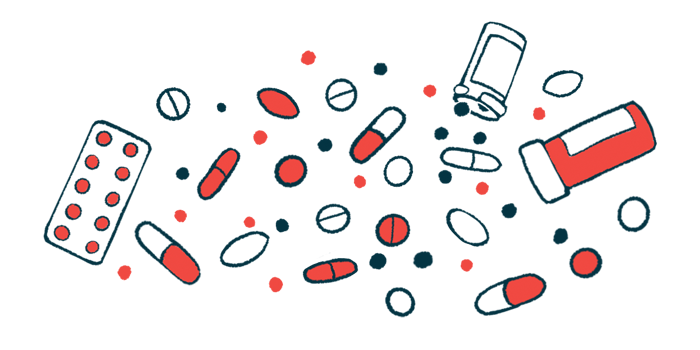#AAIC21 – Phase 3 Trial of Anti-inflammatory NE3107 Begins Enrolling

A Phase 3 trial testing NE3107, BioVie’s experimental anti-inflammatory insulin-sensitizing therapy, in adults with mild to moderate Alzheimer’s disease has enrolled its first patient.
The study, called NM101 (NCT04669028), seeks to enroll up to 316 patients, ages 55–85 years at two sites in Florida.
“NE3107 is the first potentially disease modifying, anti-inflammatory insulin sensitizer therapy in a phase 3 trial” of people with mild to moderate Alzheimer’s, Cuong Do, BioVie’s president and CEO, said in a press release.
“In prior animal studies and Phase 1 and 2 human clinical studies, NE3107 generated data supporting reduced neuroinflammation and insulin resistance, both of which are recognized as important players,” Do said in a separate press release.
The mechanistic basis for the study design was recently published in the journal Neurodegenerative Disease Management and presented by Christopher L. Reading, PhD, BioVie’s executive vice president for neuroscience research and development, in a poster at the Alzheimer’s Association International Conference (AAIC) 2021, held July 26–30 in Denver, Colorado, and virtually.
The published study is titled “NM101 Phase III study of NE3107 in Alzheimer’s: rationale, design and therapeutic modulation of neuroinflammation and insulin resistance,” while the poster was titled “Rationale for an Anti-inflammatory Insulin Sensitizer in a Phase 3 Alzheimer’s Disease Trial.”
Besides neuroinflammation, insulin resistance — a condition in which cells no longer respond to the action of insulin, a hallmark of type 2 diabetes — is increasingly seen as an important driver of Alzheimer’s development and associated cognitive decline.
Up to 81% of people living with Alzheimer’s are estimated to have impaired glucose (sugar) tolerance or type 2 diabetes.
Insulin resistance in the brains of Alzheimer’s patients is triggered by neuroinflammation-induced inactivation of the insulin signaling pathway. Given that insulin regulates energy and metabolism, its disruption impairs nerve cells’ uptake of sugar (glucose), affecting their normal function and possibly contributing to Alzheimer’s dementia and progression.
Currently approved anti-inflammatory therapies are largely ineffective for Alzheimer’s, either due to their inability to cross the blood-brain barrier and reach the brain, or because they lack broad anti-inflammatory activity. The blood-brain barrier is a highly selective membrane that shields the brain and spinal cord from potentially harmful microbes and molecules in circulation.
NE3107 is an orally available small molecule with potential anti-inflammatory and insulin-sensitizing properties that can cross the blood-brain barrier. It was originally developed by NeurMedix and acquired by BioVie in April.
The experimental molecule works by blocking the activation of two major regulators of inflammatory pathways: extracellular signal regulated kinase (ERK) and nuclear factor kappa-light-chain-enhancer of activated B-cells (NF-κB).
NFκB is activated by amyloid beta and tau — two proteins that form toxic clumps that contribute to Alzheimer’s — and by the pro-inflammatory molecules that it stimulates, leading to chronic inflammation.
NE3107 was found to have no immunosuppressive effects and to block ERK- and NF-κB-induced inflammation without suppressing their functions involved in maintaining overall balance, such as insulin signaling and nerve cell growth and survival.
Data from previous animal studies and Phase 1 and 2 human clinical trials showed that NE3107 was safe and effective at lowering neuroinflammation and insulin resistance and preventing neurodegeneration.
“NE3107 has been shown to decrease the inflammatory signal transduction cascades that are known to inhibit insulin action in the brain, and to restore insulin action,” Do said.
As such, NE3107 is thought to have the potential to slow Alzheimer’s progression and cognitive decline.
The Phase 3 NM101 trial will evaluate NE3107’s safety and effectiveness in people with mild to moderate Alzheimer’s who will be randomly assigned to receive an oral capsule of either NE3107 or a placebo, twice a day for 30 weeks (7.5 months).
Those assigned to the experimental therapy will receive increasing doses over the first four weeks, starting at 5 mg and reaching 20 mg by week five.
The study’s main goals are assessing changes in the Alzheimer’s Disease Assessment Scale-Cognitive Subscale, which measures cognitive function, and the Alzheimer’s Disease Study Cooperative Study – Clinical Global Impression of Change, which assesses cognitive functional and behavioral characteristics.
Secondary goals include changes in functional performance, neuropsychological problems, glucose control, inflammation, and safety measures. Dementia-related resource utilization will also be assessed, as well as exploratory brain imaging measures to assess changes in brain volume and glucose metabolic rate in a subset of patients.
Primary completion of the trial is expected by the end of 2022.
“This trial is well-positioned to examine the effects of NE3107 on progression of [Alzheimer’s disease] dementia, affecting more than 40 million people globally,” the researchers wrote in the poster’s abstract.
Its results “may establish the potential of anti-inflammatory insulin sensitizers to decrease cognitive decline and improve function in Alzheimer’s subjects, and slow disease progression,” the researchers wrote in the published study.
Given that neuroinflammation and insulin resistance are also thought to contribute to Parkinson’s disease, BioVie is planning to launch a Phase 2 clinical trial later this year to test NE3107 in this patient population.








